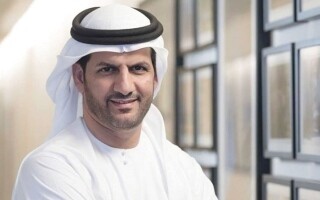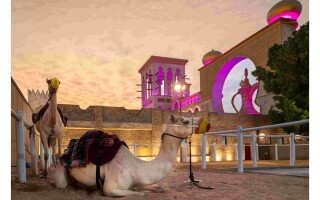
A massive and captivating masking of the original essence, illusions and dreams - this is what the installation "علة بلا دواء" carries with it. In the presentation, which took place at the Nadi Taun festival in Dubai on the past Tuesday, the theatrical troupe "Fourth Quarter Theatre and Performing Arts" vividly showed the audience a complex of issues about self-identification and disguise, about the owners of the dreams and illusions.
Against the backdrop of a luxurious scenery, where the decorations represented suspended frames and canvases from the ceiling, and also an apothecary, the spectacle began to unfold, transporting the viewers into the world of Khalafand, pretending to play the role of a healer and caregiver, lacking real medical education, yet successfully convincing the surroundings in healing thanks to their own mixture.
Well-known playwright and director Zaynab al-Malla concentrated on the fact that through mixed and comic scenes, they demonstrate heroes who are not in a position to oppose reality and even confront the truths hiding within themselves, not to mention already the conflicts with other people.
Numerous social ideological aspects were raised during the spectacle: social relations and marriage, women's right to choose their destiny and pursue their dreams, as well as the topic of control over the green integral artifact. All this was presented, not aiming at finding answers or solutions, but only emphasizing the importance of issues through laughter.
The choreography changed musical numbers, the ideal balance between which Zaynab al-Malla found while managing the work of her team, filling the stage with a multitude of characters and dancers. High-quality illusions, like a path for the weak, brightly illuminated in the finale, raising an important question about whether a person will remain trapped in their own dreams or free themselves to live their life with its truths and sufferings.
Particularly noteworthy is the use of costumes, transporting the viewer into the atmosphere of Shakespearean theatre and creating this time a modern passage with the classics. Zaynab al-Malla did not forget to add local specifics through a range of details associated with life in the UAE, such as jokes or currency naming.














